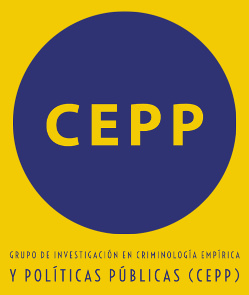Publicaciones: Artículos científicos
From crime rates to crime harm: Understanding the role of social development in Mexico city
- Carlos Vilalta, Oscar Sanchez-Siordia, Pablo Lopez-Ramirez y Gustavo Fondevila
- Publicado: 2025

This study investigates the spatial and temporal dynamics of crime and social development in Mexico City between 2019 and 2023. By utilizing novel metrics—including crime rate (CR), crime harm per resident (CHIP), and crime harm per victim (CHIV)—alongside the Social Development Index (SDI), the study uncovers complex spatial relationships between crime and social conditions. The analysis reveals significant variability in crime patterns, highlighting the pivotal role of social...
Beyond conventional metrics: the elusive impact of the Pilares program on crime in Mexico City
- Carlos Vilalta, Oscar Sanchez-Siordia, Pablo Lopez-Ramirez y Gustavo Fondevila
- Publicado: 2025

Objectives The aim of this study is to evaluate the impact of the Pilares community program on crime rates and crime harm in Mexico City during the period from 2019 to 2023. Methods Employing a staggered difference-in-differences methodology, we examined the effects of the Pilares program on three crime metrics—Crime Rate (CR), Crime Harm per Resident (CHIP), and Crime Harm per Victim (CHIV)—within 10-block and 20-block areas surrounding the Pilares...
Beyond the immediate effects of income inequality on homicide rates: A reply to Daly's critique
- Carlos Vilalta, Edel Cadena, Carlos Garrocho y Gustavo Fondevila
- Publicado: 2024

This study responds to Martin Daly's critique of our 2022 study on the correlation between income inequality and homicide rates in Mexican municipalities. Our updated analysis incorporates both immediate and lagged effects of income inequality, revealing significant non-linear relationships between past inequality and current homicide rates. We find that higher levels of past inequality interact with present inequality to increase homicide rates, particularly among currently...
Unraveling residential burglary trends in urban Mexico: The role of target accessibility, time and regional contexts
- Carlos Vilalta and Gustavo Fondevila
- Publicado: 2024
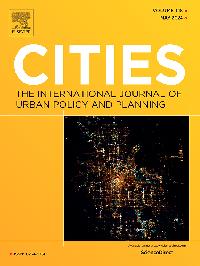
This study aims to examine how contextual factors influence the risk of burglary victimization, specifically investigating whether time and regional effects shape these relationships. By analyzing data from the Mexican system of cities between January 2018 and June 2022 while controlling for population characteristics, we detected significant decreases in burglary risk among urban dwellers living in apartments and using restricted access mechanisms, although these effects are limited...
Getting back to the state: policing the Covid-19 pandemic
- Carlos Vilalta, Gustavo Fondevila y Lucía Dammert
- Publicado: 2023
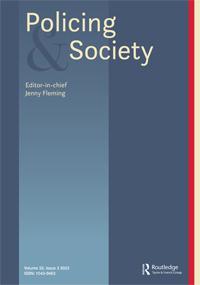
This paper analyzes the impact of the pandemic (from 2020 to 2021) on levels of trust and legitimacy of the Chilean police (Carabineros) by the population in the metropolitan area of Santiago, Chile. Based on a pseudo-panel method and a cohort fixed-effects regression model that controlled for unobserved time invariant heterogeneity, we found a significant increase in police legitimacy during the pandemic (on average, 63%, among the adult residents of the region, based on the police legitimacy...
A quantile panel examination of the moderation effects of guardianship on residential burglary
- Carlos Vilalta, Gustavo Fondevila y Pablo Lopez-Ramirez
- Publicado: 2023

Do informal and formal mechanisms of guardianship work together to reduce residential burglary? In this article we argue that informal guardianship moderates the relationship between formal mechanisms of guardianship and residential burglary. Formal guardianship requires some level of social cohesion and trust to be effective against residential burglary. We test this argument with the use of robust panel quantile methods controlling for time effects, spatial effects, and alternative...
Testing the local and spatial spillover effects of police monitored CCTV systems on crime
- Carlos Vilalta, Pablo Lopez-Ramirez y Gustavo Fondevila
- Publicado: 2023

Objectives Police-monitored CCTV systems are supposed to reduce on-the-street crime. The purpose of this study is to determine whether the MiCalle CCTV systems program in Mexico City had local and spatial spillover effects on delivery robberies. Methods When data is clustered in space and time, random effects and errors can be autocorrelated in both dimensions. To test the effectiveness of the MiCalle program on delivery robbery crime rates, a...
The Impact of Anti-COVID-19 Measures on Mexico City Criminal Reports
- Carlos Vilalta, Gustavo Fondevila y Ricardo Massa
- Publicado: 2022
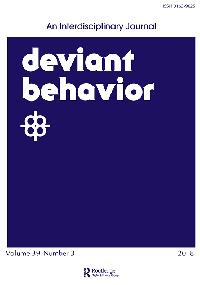
From the start of the COVID-19 outbreak, government measures impacted citizens’ behavior, particularly regarding social distancing and confinement. Whether or not these measures influenced criminal behavior is an area of particular interest. Findings, mainly concerned with the routine activity theory, have correlated restrictions on movement and circulation with a general decrease in crime. In this analysis, we use the case of Mexico City to estimate the impact of the national health...
Residential burglary and concentrated disadvantage: A spatial heterogeneity analysis in Mexico City
- Carlos Vilalta y Gustavo Fondevila
- Publicado: 2022
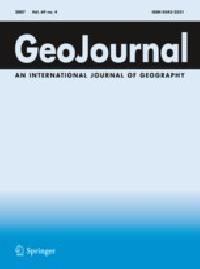
Previous empirical studies on the correlation between residential burglary and concentrated disadvantage (CD) in Latin America commonly omit the spatial elements of the relationship. Using Mexico City (CDMX) residential burglary data for the period 2016 to 2018, we examine the predictive capacity of concentrated disadvantage in relation to residential burglary patterns, using a Geographically Weighted Regression approach to check whether their correlation varies across CDMX police quadrants....
Empirical Issues in the Homicide-Income Inequality Argument
- Carlos Vilalta, Edel Cadena, Gustavo Fondevila y Carlos Garrocho
- Publicado: 2022
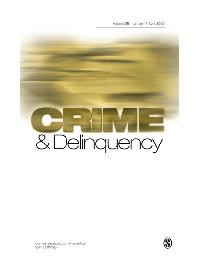
The argument that income inequality increases homicide rates has provoked scholarly debate, with some studies not supporting this position and providing evidence to the contrary. We identify several empirical issues with the current body of evidence, as well as their underlying problems. We challenge these issues by using more robust techniques than those typical of this literature. Based on the case of Mexican municipalities, we provide evidence that in fact, homicide rates correlated...
How to periodize a violent conflict: A proposal using the case of Mexico
- Ricardo Massa, Carlos Vilalta y Gustavo Fondevila
- Publicado: 2022
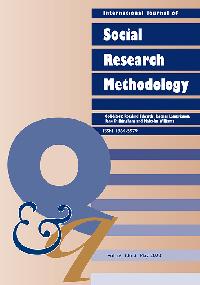
The definition of what constitutes a conflict, in terms of both time and events, has been consistently debated in the historical study of social phenomena. What has become increasingly clear, however, is that the methods used to define it are generally biased as they are highly dependent on the perceptions of the researchers who establish them. Using Mexico as a case study, we tested a data-driven method for periodizing long-term homicide trends. We found structural break analysis and...
A Community-level Test of General Strain Theory (GST) in Mexico
- Carlos Vilalta, Pablo Lopez-Ramirez y Gustavo Fondevila
- Publicado: 2021

This study explores the capacity of GST theory at the community level to explain differences in homicide rates across Mexico City neighborhoods. We find that higher levels of economic deprivation, population size, and organized crime activity, the latter being a source of strain leading to the deterioration of Mexican communities, are positively associated with homicide rates. However, neither crowding, residential mobility, nor Indian speaking population, the latter as a proxy of minority...
Drug Interactions and Juvenile Delinquency in Mexico
- Carlos Vilalta y Gustavo Fondevila
- Publicado: 2021

We analyze the interaction between Marijuana and Alcohol as correlates of property crimes among Mexican adolescents. Data were drawn from two waves of a Mexican national survey of public high school students in Mexico. A complementary log-log multilevel regression was fitted separately for each survey year, controlling for neighborhood, school, family, and demographic characteristics. We found that Marijuana users were more likely to self-report the commission of a property crime than alcohol...
Crime deterrent effect of police stations
- GustavoFondevila, Carlos Vilalta, Carlos Galindo y Fernando G.Cafferata
- Publicado: 2021

This paper discusses the empirical strategy used to test which approximation to journey-to-crime theory is more appropriate for modelling the crime deterrent effect of police stations. Using crime spatial analysis, this paper tests whether monotonic criminal distance decay from police stations or a buffer zone in the vicinity of police stations is the most appropriate way to model criminal behavior. The aim of the paper is to detect fixed patterns of spatial distribution of crime in...
A global analysis of the impact of COVID-19 stay-at-home restrictions on crime
- Amy E. Nivette et al.
- Publicado: 2021

The stay-at-home restrictions to control the spread of COVID-19 led to unparalleled sudden change in daily life, but it is unclear how they affected urban crime globally. We collected data on daily counts of crime in 27 cities across 23 countries in the Americas, Europe, the Middle East and Asia. We conducted interrupted time series analyses to assess the impact of stay-at-home restrictions on different types of crime in each city. Our findings show that the stay-at-home policies were associated...
The spatial diffusion of homicide in Mexico City: a test of theories in context
- Carlos Vilalta, Pablo López-Ramírez y Gustavo Fondevila
- Publicado: 2021

Global Crime: https://doi.org/10.1080/17440572.2021.1909480 Homicidal violence has increased substantially in Mexico City in recent years. In this regard, we ask three questions: First, is there a contagious spread of this violence across neighbourhoods? Second, does it spread in association with drug market activity among local criminal organisations? Third, does it spread to neighbourhoods characterised by concentrated disadvantage, disorder, and crime opportunity? Using homicide data...
Doing marginalized motherhood: Identities and practices among incarcerated women in Mexico
- Sveinung Sandberg, Carolina Agoff and Gustavo Fondevila
- Publicado: 2021

International Journal for Crime, Justice and Social Democracy: https://doi.org/10.5204/ijcjsd.v10i1.1538 This study examines the mothering practices and identities of incarcerated women in Mexico. Data gathered from repeated life-story interviews with 12 women, were analyzed to describe mothering practices in the different phases of incarcerated women’s’ lives. We argue that knowledge of the Latin American context is crucial to understand their experiences of motherhood. In a...
Pre-trial detention and legal defence in Latin America
- Gustavo Fondevila and Miguel Quintana-Navarrete
- Publicado: 2021

International Journal of Law in Context: https://doi.org/10.1017/S1744552320000440 Pre-trial detention is used extensively in Latin America as a systematic practice implemented by courts. Despite this fact, few empirical studies have analysed the role of defence attorneys in pre-trial incarceration. This paper attempts to describe the actions taken by lawyers in order to free their clients during the judicial process, using new empirical evidence collected from the incarcerated...
Female homicide victimisation in Mexico: a group-based trajectory and spatial study
- Ricardo Massa Roldan, Gustavo Fondevila and Enrique García-Tejeda
- Publicado: 2021

Global Crime: https://doi.org/10.1080/17440572.2020.1869539 Recent literature has demonstrated that the War on Drugs policies had different consequences for different population groups. Despite this, female homicide victimisation resulting from such policies remains an underexplored subject of study. This paper examines the asymmetrical patterns of female homicides in the Mexican states that implemented the 2006 War on Drugs. A group-based trajectory analysis was undertaken, complemented...
The impact of city block type on residential burglary: Mexico City as case study
- Carlos J. Vilalta, Thomas Sanchez and Gustavo Fondevila
- Publicado: 2021

Crime, Law and Social Change: https://doi.org/10.1007/s10611-020-09920-3 Using block level data for Mexico City as case study, this article provides evidence that the type of city block type correlates with the likelihood of residential burglary. We employed five multilevel random intercept models to relate burglary incidents to city block types. We nested the 64,282 city blocks of Mexico City within their corresponding 846 local police quadrants. Our results show that Container-type...
Corona crimes: How pandemic narratives change criminal landscapes
- Sveinung Sandberg and Gustavo Fondevila
- Publicado: 2020

Theoretical Criminology: https://doi.org/10.1177/2F1362480620981637 The epidemic psychology of pandemics creates an atmosphere of panic and fear that can expedite new laws and facilitate criminogenic narrative arousal. Using narrative criminology, we discuss crimes that emerged from pandemic narratives in the early phases of the disease in Mexico. We show how pandemic master narratives have unexpected criminogenic effects; can be negotiated to make them criminogenic; and are opposed by...
Testing Routine Activity theory in Mexico
- Carlos J. Vilalta and Gustavo Fondevila
- Publicado: 2020

The British Journal of Criminology: https://doi.org/10.1093/bjc/azaa089 Using a comprehensive victimization survey data set, we develop the first test of routine activity (RA) theory in a Latin American country. Estimating a complementary log–log multilevel model of the theory in several stages, we investigate what factors in the theory predict residential burglary risk. We find that measures associated with the exposure to potential offenders, target attractiveness, target...
Women Providing and Men Free Riding: Work, Visits and Gender Roles in Mexican Prisons
- Carolina Agoff, Sveinung Sandberg and Gustavo Fondevila
- Publicado: 2020

Victims & Offenders: https://doi.org/10.1080/15564886.2020.1828210 Facing the Covid-19 pandemic, prisons in Mexico City prohibited visits. This sparked clearly gendered protests: male prison inmates complained that the restrictions left them without resources to deal with prison shortages, while women complained that it prevented them from sending resources to their families. Based on data from life story interviews conducted before the pandemic, we explore visits, prison work, and...
Perceived Police Corruption and Fear of Crime in Mexico
- Carlos J. Vilalta and Gustavo Fondevila
- Publicado: 2020

Mexican Studies/Estudios Mexicanos: https://doi.org/10.1525/msem.2020.36.3.425 Previous research in Mexico has argued that perceived corruption and perceived efficacy predict dissatisfaction and lack of confidence in the police. This article extends previous research by examining whether perceived police corruption impacts fear of crime among the adult population. We argue that—beyond traditional correlates of fear of crime and controlling for the intensity of the war on organized...
Stories of the “good father”: The role of fatherhood among incarcerated men in Mexico
- Sveinung Sandberg, Carolina Agoff and Gustavo Fondevila
- Publicado: 2020

Punishment & Society: https://doi.org/10.1177%2F1462474520969822 This study examines the role of fatherhood for incarcerated men in Mexico, based on repeated life-story interviews with twelve men. We distinguish between their descriptions of fatherhood in the past and present and how they imagine the future, and explore how fathers describe their relationship with their children. The incarcerated men idealize the past with their children or tell stories of how they have changed from being...
Criminal justice reform and court-imposed bail in Mexico: an empirical report
- Rodrigo Meneses and Gustavo Fondevila
- Publicado: 2020

International Journal of Comparative and Applied Criminal Justice: https://doi.org/10.1080/01924036.2020.1844251 This article furthers the discussion on bail through an analysis of the conditions under which this measure is used in Mexico, a country which has recently reformed its penal system (2008–2016) by introducing new procedural rules, which seek to reduce the use of pretrial detention. The study is based on a statistical-descriptive examination of 1,537 judicial cases in...
Responding to COVID-19 in Latin American Prisons: The Cases of Argentina, Chile, Colombia, and Mexico
- Lina Marmolejo, Daniela Barberi, Marcelo Bergman, Olga Espinoza and Gustavo Fondevila
- Publicado: 2020

Victims & Offenders: https://doi.org/10.1080/15564886.2020.1827110 The purpose of this paper is to identify and analyze how prison systems in Argentina, Chile, Colombia, and Mexico respond to the coronavirus disease (COVID-19). It explores the challenges these institutions face, the actions taken, the beneficiaries from such measures, and their immediate effect. We argue that governments and prison authorities struggle to put in place comprehensive measures to prevent and control the...
Tipo de vivienda, barreras físicas y sensación de inseguridad en la colonia
- Carlos Vilalta, Lucía Carmina Jasso y Gustavo Fondevila
- Publicado: 2020

Economía, Sociedad y Territorio: https://doi.org/10.22136/est20201621 En este estudio analizamos si el tipo de vivienda y las barreras físicas colocadas entre la calle y la entrada de la misma mantienen una relación estadística con la sensación de inseguridad en el entorno de la colonia. Los resultados sugieren rechazar tal hipótesis por no existir evidencia. Esta investigación permite al lector conocer los correlativos que se asocian con...
Violence in Latin America: An Overview of Research and Issues
- Carlos J. Vilalta
- Publicado: 2020

Annual Review of Sociology: https://doi.org/10.1146/annurev-soc-073018-022657 In this review of violence in Latin America, I have attempted to organize the region's scholarly literature around the most influential and leading research issues. Three main lines of research have materialized from this overview. First, one line of research is concerned with the difference between the old patterns of violence and the so-called new violence. Second, a line of research focuses on the...
Concentrated violence: The influence of criminal activity and governance on prison violence in Latin America
- Jennifer Peirce and Gustavo Fondevila
- Publicado: 2020

International criminal justice review: https://doi.org/10.1177/2F1057567719850235 In this article, we explore patterns of prison violence in five Latin American countries: Argentina, Brazil, Chile, El Salvador, and Peru. Drawing on data from prisoner surveys conducted in 49 facilities with over 4,400 prisoners, we analyze the association between facility-level and individual-level rates of experiences of violence and the extent of perceived criminal activity committed in or ordered from...
War on Drugs, War on Women: Visualizing Female Homicide in Mexico
- Gustavo Fondevila, Ricardo Massa and Rodrigo Meneses
- Publicado: 2020

Women & Criminal Justice: https://doi.org/10.1080/08974454.2019.1653812 Recent literature has established that War on Drug policies lead to differentiated consequences over the lives of certain groups within the population when analyzed by race, gender, age, and/or social status. In particular is the relationship between the War on Drugs and its effects on women. The objective of this article is to analyze the asymmetric behavior of homicidal victimization between males and females...
Homicide as a function of city block layout: Mexico City as case study
- Carlos J. Vilalta, Robert Muggah and Gustavo Fondevila
- Publicado: 2020

Global Crime: https://doi.org/10.1080/17440572.2020.1715219 Focused on Mexico City, this article offers a seminal examination of the relationship between block layout and intentional homicide. The authors applied multilevel random-intercept negative binomial models to assess the contribution of block layout characteristics to homicide counts while controlling for other factors related to the physical environment and socioeconomic disadvantage. The assessment finds that container-type...

